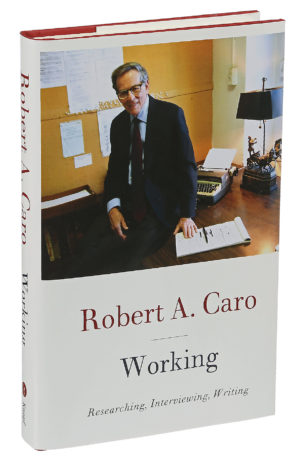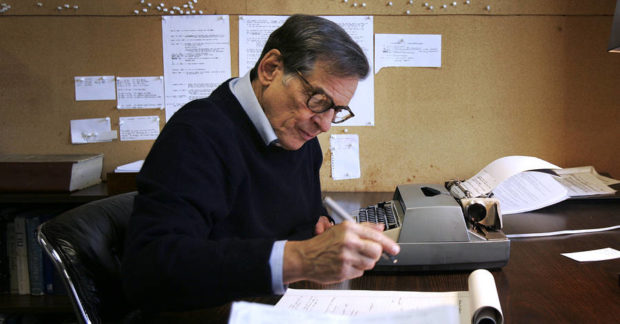Working with Robert A. Caro
What I learned from historian and journalist Robert A. Caro’s 2019 book, Working.
On research: “Of course there was more. If you ask the right questions, there always is. That’s the problem.”

“It’s the research that takes the time — the research and whatever it is in myself that makes the research take so long, so very much longer than I had planned.”
On first writing longhand, then on a Smith-Corona Electra 210 manual typewriter: “When I decided to write a book, and, beginning to realize the complexity of the subject, realized that a lot of thinking would be required — thinking things all the way through, in fact, or as much through as I was capable of — I determined to do something to slow myself down, to not write I had thought things through.”

On interviewing: “Silence is the weapon, silence and people’s need to fill it — as long as the person isn’t you… When I’m waiting for the person I’m interviewing to break a silence by giving me a piece of information I want, I write ‘SU’ (for Shut Up!) in my notebook. If anyone were ever to look through my notebooks, he would find a lot of ‘SUs’ there.”
On a sense of place: “The importance of a sense of place is commonly accepted in the world of fiction; I wish that was also true about biography and history, about nonfiction in general, in fact… By ‘a sense of place,’ I mean helping the reader to visualize the physical setting in which a book’s action is occurring. The action thereby becomes more vivid, more real, to him, and the point of the author is trying to make about the action, the significance he wants the reader to grasp, is therefore deepened as well.” (This from the biographer of Lyndon B. Johnson who, with his wife, moved from New York to live in the Texas Hill Country, where LBJ was raised, for three years so he would understand the former president’s roots.)
On truth and facts: “…While I am aware that there is no Truth, no objective truth, no single truth, no truth simple or unsimple, either; no verity, eternal or otherwise; no Truth about anything, there are Facts, objective facts, discernible and verifiable. And the more facts you accumulate, the closer you come to whatever truth there is. And finding facts — through reading documents or through interviewing and re-interviewing — can’t be rushed; it takes time. Truth takes time.”